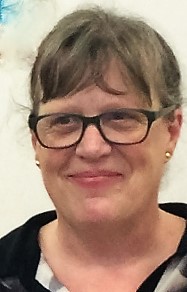| Страниц в теме: [1 2 3] > | Poll: Can someone achieve total fluency in a foreign language and be mistaken for a native speaker? Автор темы: ProZ.com Staff
|
|---|
This forum topic is for the discussion of the poll question "Can someone achieve total fluency in a foreign language and be mistaken for a native speaker?".
This poll was originally submitted by patriciacharnet. View the poll results »
| | | | Sonja Köppen 
Германия
Член ProZ.com c 2008
английский => немецкий
+ ...
| It is rare, but yes | Sep 12, 2011 |
One of my Spanish tutors was of that sort. He started learning German in his own times of study, thus as a grown-up, but he became completely indistinguishable from any native. More: he adopted the local style and became a Hesse. I considered him a walking miracle.
| | | | | Depends on country/listener | Sep 12, 2011 |
I think it depends on who is listening to you and possibly what language you have adopted. I am Swedish and most English-speaking people assume I am British, and most Spanish-speaking people assume I am from another part of the Spanish-speaking world. However, not wishing to sound snobbish in any way, the more well-educated the listener, the better they seem to be able to tell that you are not speaking your native language.
| | | | | Mistaken for is not the same as be... | Sep 12, 2011 |
Shortcutting through all the comments we're going to make about age at which you started to learn the lang etc, I wanted to say that while many non-linguists may be taken in, I don't consider myself to be bilingual, far from it in fact.
Another factor which works "against me" is when people see me: I just don't look as though I should be a Spanish speaker. On numerous occasions I have had encounters where the person I've been speaking to hasn't expected me to speak in Spanish, and h... See more Shortcutting through all the comments we're going to make about age at which you started to learn the lang etc, I wanted to say that while many non-linguists may be taken in, I don't consider myself to be bilingual, far from it in fact.
Another factor which works "against me" is when people see me: I just don't look as though I should be a Spanish speaker. On numerous occasions I have had encounters where the person I've been speaking to hasn't expected me to speak in Spanish, and had expected not to understand me - predisposition. On those occasions you virtually have to taken them by the scruff of the neck and say "listen to what I am saying!". ▲ Collapse
| | |
|
|
|
William Murphy 
Италия
Local time: 21:46
Член ProZ.com c 2009
итальянский => английский
+ ...
| Happens all the time | Sep 12, 2011 |
My wife and I were in Ljubljana a few years back and the first evening as we were walking through the center of town looking for a place to eat we saw a restaurant which had a menu board beside the entrance. The menu was written in Slovene and as neither of us know the Slovene language we were pondering our options when a waiter came outside and lit up a cigarette. I asked him if he spoke English and without batting an eye, he returns, 'Do you?'
You had to be there to capture the fu... See more My wife and I were in Ljubljana a few years back and the first evening as we were walking through the center of town looking for a place to eat we saw a restaurant which had a menu board beside the entrance. The menu was written in Slovene and as neither of us know the Slovene language we were pondering our options when a waiter came outside and lit up a cigarette. I asked him if he spoke English and without batting an eye, he returns, 'Do you?'
You had to be there to capture the full force of the tone and wit which just sent me reeling with laughter at his reply. But, we went inside and enjoyed an excellent meal served by a staff of young Slovenes who spoke English with American accents and had a full command of slang usage as well.
I have met a lot of people whose command of English is such that they might be taken for native speakers - at least until some small, random piece of cultural trivia pops up that might give them away.
On the other hand, I recognize that most people will speak languages they have learned in addition to their native language with an accent. I fall into this category myself. While it used to bother me, I now realize that everyone has some type of accent/drawl/regional inflection to any language they are speaking (when they don't that is a dead give away that they are not native speakers). When I speak English, my accent is unequivocally American, but not, Texan. After living in Europe for the past 15 years though, I have had Americans ask me on more than one occasion where I was from, not believing me when I said Houston, Texas. Maybe there should be a question about native speakers being mistaken as foreigners... ▲ Collapse
| | | | neilmac
Испания
Local time: 21:46
испанский => английский
+ ...
I have been mistaken for a native Spanish speaker by native Spanish people before, but it doesn't happen every time I open m y mouth and there is usually some kind of giveaway, like accent, intonation patterns or subjunctive misuse, which although also common in native speakers, seems to be more readily spotted in the "guiri" population.
In addition to what our colleagues have already stated about individual aptitude and different languages or language groups, I would add the caveat... See more I have been mistaken for a native Spanish speaker by native Spanish people before, but it doesn't happen every time I open m y mouth and there is usually some kind of giveaway, like accent, intonation patterns or subjunctive misuse, which although also common in native speakers, seems to be more readily spotted in the "guiri" population.
In addition to what our colleagues have already stated about individual aptitude and different languages or language groups, I would add the caveat that however high a level someone achieves, this does not necessarily make them a good translator (I have known theoretically bilingual people who are functionally illiterate or culturally ignorant in the less dominant language of their pair).
My advice is to "stick to the day job", i. e. to translate only into one's own mother tongue, however bilingual you think you may be. ▲ Collapse
| | | | David Hayes 
Франция
Local time: 21:46
французский => английский
| It is very rare. | Sep 12, 2011 |
It is very rare because native-speaker status doesn't just mean that you have no obvious trace of a foreign accent and perfect command of grammar and vocabulary. In fact, it must be more than these things since some native speakers do not pronounce words correctly and make many grammatical errors. I'm sure I'm not the only person who has come across non-native English speakers who are too text-book perfect to be really convincing.
I think native-speaker status is more a question of... See more It is very rare because native-speaker status doesn't just mean that you have no obvious trace of a foreign accent and perfect command of grammar and vocabulary. In fact, it must be more than these things since some native speakers do not pronounce words correctly and make many grammatical errors. I'm sure I'm not the only person who has come across non-native English speakers who are too text-book perfect to be really convincing.
I think native-speaker status is more a question of one's language being such a part of one's identity that one wouldn't really exist without it. This implies a whole cultural and historical dimension that is not acquired directly from formal language study. It also includes the ability to make deliberate mistakes for special effect and some capacity to invent new words.
I would say that the few people who grow-up in a genuinely bi-lingual and bi-cultural environment from a very young age stand a pretty good chance of achieving the type of fluency I'm talking about.
I think it safe to say that no one would ever mistake me for a Frenchman! ▲ Collapse
| | | | Thayenga 
Германия
Local time: 21:46
Член ProZ.com c 2009
английский => немецкий
+ ...
| It's very rare, but...yes. | Sep 12, 2011 |
An Irish gentleman, who has never met me before, heard that I spoke German. Of course he immediately took advantage of such an opportunity. We spoke for a while, then switched to English and...he asked me in all earnest: "You're American. So where did you learn such good German?"
| | |
|
|
|
neilmac
Испания
Local time: 21:46
испанский => английский
+ ...
David Hayes wrote:
I think native-speaker status is more a question of one's language being such a part of one's identity that one wouldn't really exist without it. This implies a whole cultural and historical dimension that is not acquired directly from formal language study. It also includes the ability to make deliberate mistakes for special effect and some capacity to invent new words.
Couldn't agree more. Vive la difference!
| | | | | Rare - but more likley with speaking than writing | Sep 12, 2011 |
There are two parts to this question. I distinguish between "total fluency" and "mistaken for a native speaker." I would agree with David Hayes when it comes to total fluency. But being mistaken for a native speaker is more attainable.
To my surprise, I was mistaken for a Brazilian a number of times, even though I was fully aware of my shortcomings. Sometimes I wondered why the people couldn't hear what I heard in my own speech. Those were the days when I was speaking Portuguese 100... See more There are two parts to this question. I distinguish between "total fluency" and "mistaken for a native speaker." I would agree with David Hayes when it comes to total fluency. But being mistaken for a native speaker is more attainable.
To my surprise, I was mistaken for a Brazilian a number of times, even though I was fully aware of my shortcomings. Sometimes I wondered why the people couldn't hear what I heard in my own speech. Those were the days when I was speaking Portuguese 100% of the time and I was up to date on my slang; it wouldn't happen any more.
Writing is different. Almost invariably, non-native writing shows. The exceptions are extremely, extremely rare - e.g., Joseph Conrad, Vladimir Nabokov in English. ▲ Collapse
| | | | Evans (X)
Local time: 20:46
испанский => английский
+ ...
| mistaken by looks | Sep 12, 2011 |
aceavila - Noni wrote:
Shortcutting through all the comments we're going to make about age at which you started to learn the lang etc, I wanted to say that while many non-linguists may be taken in, I don't consider myself to be bilingual, far from it in fact.
Another factor which works "against me" is when people see me: I just don't look as though I should be a Spanish speaker. On numerous occasions I have had encounters where the person I've been speaking to hasn't expected me to speak in Spanish, and had expected not to understand me - predisposition. On those occasions you virtually have to taken them by the scruff of the neck and say "listen to what I am saying!".
The same thing has often happened to me in Spain. People take one look at me and continue to look blankly when I speak to them until it slowly dawns on them that I have spoken to them in Spanish. It's not as bad now as it used to be when I lived there in the seventies, as Spain is a lot more cosmopolitan than it was back then. Conversely, when I'm in Holland, people come up to me and talk to me in Dutch (of which I hardly know a word), because they assume I am Dutch from the way I look.
| | | | Sophie Dzhygir 
Франция
Local time: 21:46
немецкий => французский
+ ...
I voted yes. But that's actually the anwser to the second part of the question only. You don't need total fluency to be mistaken for a native speaker. I often get mistaken in such a way without having any "total" fluency in any foreign language.
It just take a bit of chance, for instance it depends on the subject you're discussing, if that's one you're very familiar about, you can fool someone, but with another subject you'll be discovered at once.
Then it depends on the listener. So... See more I voted yes. But that's actually the anwser to the second part of the question only. You don't need total fluency to be mistaken for a native speaker. I often get mistaken in such a way without having any "total" fluency in any foreign language.
It just take a bit of chance, for instance it depends on the subject you're discussing, if that's one you're very familiar about, you can fool someone, but with another subject you'll be discovered at once.
Then it depends on the listener. Someone like a translator, or language professional in general, will listen much more acutely and thus hear better than just "anyone". It happens all the time that someone tells me about someone else that "he/she speaks perfectly", "you wouldn't guess that he/she is a foreigner", etc. whereas this is just obvious for me.
And finally, yes, it depends on countries and languages. The Russians, for instance, are so little used to meeting foreigners who speak their language more or less correctly that they may very easily take you for one of them. Most of the time I get mistaken for a native, this happens with Russian, and it happens very rarely with German although my German is probably better than my Russian. ▲ Collapse
| | |
|
|
|
Claire Cox
Великобритания
Local time: 20:46
французский => английский
+ ...
| A long time ago | Sep 12, 2011 |
I agree with Muriel. It happened to me when I lived in France many moons ago as part of my year abroad from university. I was totally immersed in a French environment, with no contact with any English speakers whatsoever and I was mistaken for a native French speaker on a number of occasions, much to my amazement. It definitely wouldn't happen now though, more's the pity....
[Edited at 2011-09-12 10:51 GMT]
| | | | | Happens all the time | Sep 12, 2011 |
Many people don't know that I am not French. It happened more than once that people wouldn't believe me when I told them I'm German, after having spoken with them for some time or now and then over the course of several months/years (like my children's teachers, parents of my children's friends and so on).
But then, this seems normal to me, as I have been totally immersed in French and French culture for 20 years now, and speaking only French at home for even longer.
| | | |
My eldest brother went to the UK to study hotel management and catering technology when he was 20 years old (some 40 years ago). He lived for a number of years in the UK and he married an English girl. He has always worked abroad mainly on English speaking countries (UK, Ireland, South Africa, United States) and is frequently mistaken for a native speaker. He even speaks Portuguese with a strong British accent…
For my part, when I go to France I am frequently asked: “Are you Bel... See more My eldest brother went to the UK to study hotel management and catering technology when he was 20 years old (some 40 years ago). He lived for a number of years in the UK and he married an English girl. He has always worked abroad mainly on English speaking countries (UK, Ireland, South Africa, United States) and is frequently mistaken for a native speaker. He even speaks Portuguese with a strong British accent…
For my part, when I go to France I am frequently asked: “Are you Belgian?”… ▲ Collapse
| | | | | Страниц в теме: [1 2 3] > | To report site rules violations or get help, contact a site moderator: You can also contact site staff by submitting a support request » Poll: Can someone achieve total fluency in a foreign language and be mistaken for a native speaker? | CafeTran Espresso | You've never met a CAT tool this clever!
Translate faster & easier, using a sophisticated CAT tool built by a translator / developer.
Accept jobs from clients who use Trados, MemoQ, Wordfast & major CAT tools.
Download and start using CafeTran Espresso -- for free
Buy now! » |
| | Anycount & Translation Office 3000 | Translation Office 3000
Translation Office 3000 is an advanced accounting tool for freelance translators and small agencies. TO3000 easily and seamlessly integrates with the business life of professional freelance translators.
More info » |
|
| | | | X Sign in to your ProZ.com account... | | | | | |

















